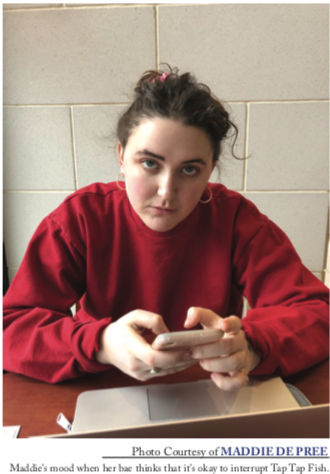The United States of America may be the leader of the free world, but we have a hunger problem. And a food waste problem. That just doesn’t add up. In 2015, the USDA reported that 42.2 million Americans lived in “food insecure households.” And it’s not for a lack of food — as much as 40 percent of the food grown, processed and transported in the United States will never even be consumed. The equally shocking part? Color, shape, size and labeling are often key factors used to determine the quality of produce. Much of the 70 million tons of food that doesn’t make it to our plates is not rotted, damaged or even dangerous. It’s a banana that’s too big, a cucumber with a bump or chips that were labeled in English instead of French. Tons and tons of edible and healthy food is wasted each year somewhere along the food supply chain, from the farm to the table.
Unfortunately, this waste accumulates in landfills, emitting serious quantities of methane and carbon dioxide, two major greenhouse gases contributing to climate change.
Canadian filmmakers Grant Baldwin and Jen Rustemeyer decided to do something about it. In their documentary, “Just Eat It,” they live on food that would otherwise be thrown away, and they do it for six months. The film was shown Wednesday, Nov. 2 in Burgiss Theatre as a CLP event sponsored by the David E. Shi Center for Sustainability. The documentarian couple visits dumpsters, discount bins at grocery stores, farmer’s markets and even a food photo shoot to do their shopping. Unexpectedly, their journey exposes dumpsters full of untouched fruits, vegetables, meat, chocolate and prepackaged snacks, often thrown out for unknown reasons. The food they accumulate eventually becomes so overwhelming that they resort to letting friends and family take whatever they need from their home. Twenty thousand dollars worth of rescued food later, Baldwin and Rustemeyer find themselves 10 pounds heavier and paying a $200 grocery bill. That’s right —$200 over six months!
Tristram Stuart, a food waste activist featured in the film describes the sensation best, “We live in a wealthy society that doesn’t have to eat leftovers, so we don’t. We pitch them instead. In fact, rich countries such as Canada and the United States have anywhere from 150 to 200 percent of the food that we actually need.”
But what happens in Canada stays in Canada. What about right here, in Greenville County? I decided to find out for myself. I drove behind our local Publix one evening to see if I could catch a glimpse of anything like the unbelievable images captured in the documentary. What I found was quite contradictory. The dumpster seemed to be mostly empty and there were compost bins behind the building. I reached out to Publix over the phone and learned that our store donates to Loaves and Fishes, a local organization that rescues fresh food for the hungry. According to their website, Loaves and Fishes rescued 1.9 million pounds of food in 2015. The Food and Waste Reduction Alliance published a spotlight article on Publix in December of 2015 that features a Q&A with Michael Hewett, Publix’s Director of Environmental and Sustainability Programs. According to this interview, the company pays close attention to customer demand to make sure unnecessary byproducts are not ordered. The leftovers that do accumulate are recycled, donated or sent to local farmers to feed their livestock. These initiatives divert thousands of tons of food waste from landfills, creating more sustainable business methods while feeding the hungry.
There’s more good news —by eating in the Dining Hall, you are also contributing to sustainable composting and local farms. Eric Battles, the Executive Chef of Bon Appetit at Furman, gave me the inside scoop on where our food goes after hours. One hundred percent of our food waste is composted and returned to the soil at the Furman Farm, a quarter acre organic garden beside the Shi Center for Sustainability. Additionally, delicious vegetables like squash are grown on campus and then served right back to us. Bon Appetit also purchases produce, dairy and meats from local farms. Unfortunately, we are not currently part of a donor program to feed families that identify as food insecure, but it is encouraging to know that our food waste is not ending up in a landfill.
As a Furman student, you can rest easy knowing that your dining options and local grocery store are taking steps to eliminate food waste. But what about outside of the Furman bubble? The “Just Eat It” team offers some tips on their website to help you be a part of the movement to end food waste in North America. First, know what you have on-hand and what you need before you go shopping — and stick to it! Prioritize what foods need to be used first and take advantage of smoothies, soups and stews to use up large quantities. Don’t fall into label misconceptions; “use by” and “best before” dates indicate peak freshness, not safety. Preserve it: freeze it, can it, dry it or dehydrate it. Buy food that may not be ready for its close up — variations in size, shape and color can cause perfectly good food to be wasted.
As Baldwin remarked in the film, being a part of the change we wish to see, “doesn’t require a complete revolution in the way we treat food. It’s just tweaking it slightly and usually in delicious ways.”






























